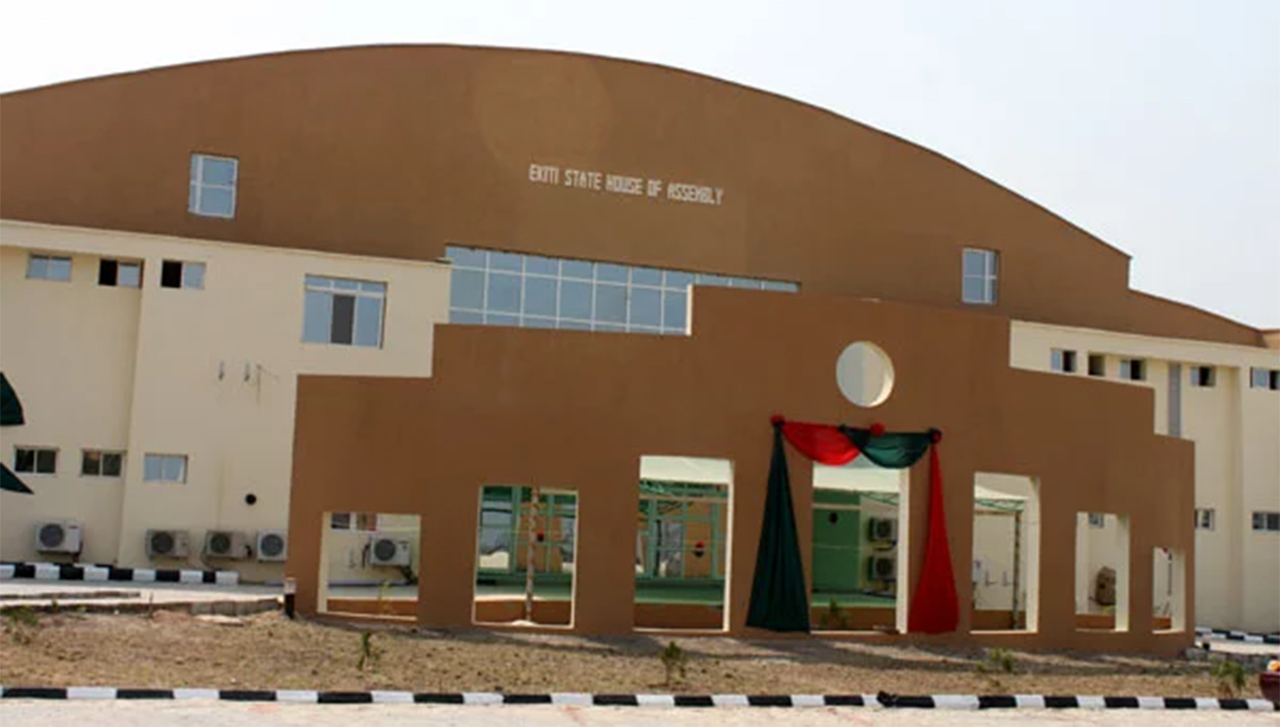The ‘palace coup’ at dawn in Ekiti House of Assembly last week, which saw the emergence of two speakers in one week, demonstrated how subservient the elected legislators are to other arms of government. The need to elect a new speaker in Ekiti arose from the death of the former speaker, Funminiyi Afuye, on October 19, 2022. Following its own constitutional procedures, the House members, on November 15, 2022, elected Gboyega Aribisogan, a former House Committee Member on Information, as its speaker.
Aribisogan reportedly defeated Olubunmi Adelugba, his opponent in the election. He reportedly scored 15 votes while Adelugba had 10 votes, and in line with the popular vote, the Clerk of Ekiti State House of Assembly, Mr Tola Esun, swore Aribisogan in as speaker.
However, shadowy hands emerged almost immediately after Aribisogan’s election, as it was reported that the elected speaker was prevented from accessing the paraphernalia of speakership – keys to the Speaker’s office, official vehicles and the like. Also, it was alleged that both Governor Biodun Oyebanji and the immediate past governor of the state, Dr Kayode Fayemi, avoided Aribisogan, as speculation that he was not the anointed candidate for the speakership spread in the state.
A week later, 17 of the 25 members of the House, in the early hours of November 21, under the cover and protection of heavily armed security operatives, went to the House to elect Olubunmi Adelugba as speaker, the same candidate Aribisogan reportedly defeated the previous week.
Ekiti State House of Assembly is not new to crisis and controversy. In 2006, the assembly was put under lock and key for months, over plots to impeach the then governor, Ayo Fayose, who was eventually removed on August 14, 2006, on account of corruption. It was alleged that the House acted under influence from Abuja.
In 2007, as a result of the sharp division between the Peoples Democratic Party (PDP) and the then Action Congress (AC), when Segun Oni was governor, the 13-member AC caucus abandoned the plenary for three months over the sharing of positions, until peace was restored. During the second coming of Ayo Fayose as governor in 2014, suspicions that he would be impeached again led to serious crisis in the assembly. The All Progressives Congress (APC) lawmakers were denied access to the complex for months, leaving only seven lawmakers, who were loyal to Fayose, in charge of the affairs of the assembly. Last week’s removal of an elected speaker after barely a week was another evidence that all may not be well even in the current dispensation.
It is apparent that the Ekiti State House of Assembly, like most houses of assembly in Nigeria, lacks the independence that the principle of separation of powers prescribes in a democracy. In a constitutional democracy, the legislature is not only to make laws but also to provide oversight on the activities of the executive arm of government. Specifically, it has the power to investigate any wrongdoing by the executive arm of government.
However, in many states, legislators sell their birthright to state governors who practically strip them of all their powers to function with dignity and independence. A situation in which lawmakers unanimously elect their speaker, only to remove them just a week later portends danger for our democracy, especially if this sort of about-turn is as a result of prodding from the executive arm of government as has been alleged in several cases of leadership change in the state houses of assembly in this country. It means that the lawmakers may never be able to stand up to the Executive, even when the governor and his cabinet engage in corruption or any form of abuse of the constitution. This way, many state houses of assembly have yielded themselves as rubber-stamp and lackeys of state governors, to the detriment of the development of the states and at the expense of our democratic consolidation.
We note that Aribisogan has reportedly hired lawyers and may soon test his removal in the court of law. We encourage such a recourse to the law as it helps to keep the peace in the state. Section 92 (c) of the Constitution stipulates that a speaker or his deputy could be removed, “from office by a resolution of the House of Assembly by the votes of not less than two-third majority of the members of the House.” We also encourage all involved actors to remain law-abiding and not to take the law into their own hands, as sadly, has often been the case in such political scuffles in the past.
Most importantly, we urge elected representatives of the people across all the states and the federal parliament to always uphold the separation of powers and other democratic principles upon which our democracy is founded. Nigeria deserves more than yes-men legislators.

 Join Daily Trust WhatsApp Community For Quick Access To News and Happenings Around You.
Join Daily Trust WhatsApp Community For Quick Access To News and Happenings Around You.


